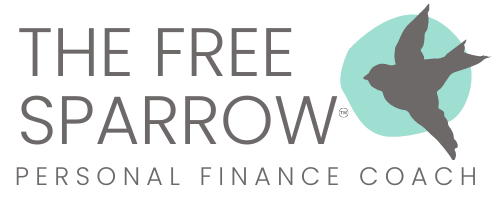Let Go of Overspending
“Do not save what is left after spending; instead spend what is left after saving.” ― Warren Buffett
In my last post, Redefining Retirement, I introduced first step in financial independence, the personal budget. Without a strong personal budget the road to FIWO will be difficult. Heck, life in general is hard without a good understanding about what you earn and how you spend it. Cash too often fall between the cracks. Similar to training for a marathon or even being able to run a single mile, daily dedication to the practice is required. Your budget is no different. The practice of “letting go” of spending on things that don’t truly bring you happiness is the topic of this post.
To bring the illustration of how powerful the act of only spending money on things that bring your happiness, let's look at one person's choices as it relates to their earnings and spend, and see how it plays out in two very different ways over the course of 5 years. Let's call this person, May.
May does not live with anyone and has no kids. She is 1 year out of school and recently earned a promotion that makes $40,000 (after taxes and medical insurance). And to make things easy for this example, she has not debt or school loans. Let's look at two different paths she could take.
Option 1: No budget May feels rich with her new promotion and she buys a used BMW and moves into a nice apartment. She goes out for coffee and lunch every work day and treats herself to a massage and nails spa each month. For entertainment she goes to restaurants and bars with her friends. The below chart shows her monthly income and expenses. I have added one more row to highlight what May's spend looks like over 5 years. As I have said before, low cost items add up! A single $60 spend per month sounds small, but that spend over 12 months, then multiplied over 5 years definitely is big! At the end of 5 years May is in debt 22K. (given nothing changes.. pay increase...ect). With a zero percent savings rate there is no chance she can even go a month without her job.
Option 2: Focused Budget: with FIWO in mind Now let's take May down a different path with minor changes. When May received a new promotion she uses that money to "buy" her retirement, with a 401K, putting away $655 per month. She chooses a less expensive car, does her own nails and entertains her friends at home. However she does go out 2-3 times per month to restaurants and bars. With the cut backs in entertainment her 401K would be 39K by the end of 5 years (not considering market growth) and her emergency fund is $3,000. This emergency fund can also be considered an everything else fund. For examples haircuts, oil changes, medicine. Keep in mind when you spend in this category you are taking away from your emergency fund and furthermore your FIWO fund, so spend carefully. At the end of every month you should move any money left in your account to a trading account. Pro Tip: Don't let more than $100 cash sit in your checking account or savings account when they could be growing in an index fund! More on that later.
You may have noticed that at the bottom of each budget is a FI number. When considering FIWO many consider of the rule of 4%. You could read stacks of books on this topic (and you should), but in short, the 4% rule states that you can withdraw 4% of your portfolio each year in retirement for a comfortable life. So if you have 1M invested, you can withdraw $40,000 per year. This means, if May's life circumstances do not change, she could retire when she reaches 800K. Now, this is a tight budget and she may want more room in the future to adapt for family or other interest, but with a smooth budget and a well laid out plan, she will have that choice. So do you now see why a budget is so important? Cut out waste and have work be an option sooner in your life!
As you can see, May's budget varies dramatically with her choices on "low cost" purchases. So how does your personal budget add up over 5 years? Does anything stand out? In the next blog I will dig into two line items that needlessly suck up money: grocery bills and mobile phones. I will also discuss trading accounts: a place to put emergency or FIWO money.
Book Club: The Simple Path to Wealth, by JL Collins.


